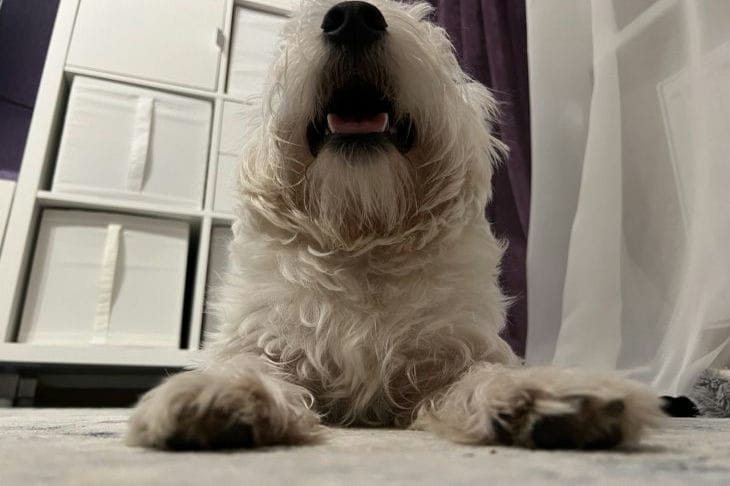Feeding Dogs: 4 Myths It's Time to Stop Believing
Feeding Our Dogs: Do We Really Know Which Foods Are Good for Them and Which Foods to Avoid?
So we try to test various urban legends about feeding our dogs at home.
What are the most pervasive misconceptions among pet owners? and how can we navigate toward healthier, more nutritious nutrition for our dogs?
“Raw meat makes dogs aggressive”
Raw meat, being a high value resource for most dogs, may make a dog more possessive of food (eg growling more if you approach the bowl to protect a chicken carcass), but it does not make him absolutely more aggressive.
But calmly, because bones and meat are like dog food to relax, for endorphins. When eating raw meat, the dog also feels satisfaction and thus lowers the emotional state to a state of calm and relaxation.

"Giant breeds need a lot of calcium"
It is important to find a balance of calcium. Too much calcium is a health risk for your giant puppy, as is a deficiency, which is what you really want to prevent.
Too much calcium reduces the absorption of other important nutrients. Young dogs, in particular, may not be able to absorb high doses of calcium, impairing cartilage formation, thickening joints, and causing bone deformities.
Deficiency results in brittle and thin bones, unhealthy and easily decayed teeth and rickets.
"When a dog eats grass, it means he has a stomach ache"
It is normal for dogs to eat grass. There have been studies that show that only a small percentage of dogs eat grass to induce vomiting. Even the ancient urban legend that when dogs eat grass, the weather changes has not been confirmed.
Dogs simply love grass, especially when they are young and fresh. Grass is an excellent food for intestinal flora, contains microorganisms that replenish it, young grass has a very juicy and aromatic taste. It is very nutritious and rich in crude fiber, and therefore supports and helps intestinal peristalsis.
Burning helps dogs with stress. Grass tastes sweet because it contains sweet substances. Swallowing grass helps to cope with stressful situations, chewing relaxes the dog because endorphins are released by the movement of the lower jaw.
We must not forget that grass contains water, and therefore dogs need it when they do not have drinking water.
Another reason why a dog eats grass may be because it has previously ingested something that has made it sick. In this case, the dog is controlling its digestive problems by eating grass. Grass can help the dog vomit to relieve tonsillitis problems.
"Garlic is an excellent pesticide"
Virtue lies in the middle, a Latin phrase that always reminds us of the balance between extremes, the measure in things: between garlic yes and garlic no, - garlic in moderation and certainly not as the only pesticide.
In modern parasitosis, it is recommended to use special pharmaceuticals. In recent decades, even veterinary medicine has studied the effect of garlic on dogs and realized that using it in balance can be a useful food.
Garlic is an excellent antioxidant, a friend of the heart, which makes the blood thinner and lowers blood pressure.
Stimulates the body's defenses, reduces aging disorders, provides better resistance to parasites if it produces skin exhalation, improves the appearance of the coat. A positive effect on dogs suffering from scabies and dermatomycosis has also been found.
But how much garlic to give? - The lethal dose is two cloves of garlic per dog or one daily and continuous use over time. The recommended dose is 1/2 clove for small dogs per week, 1 clove for medium/large dogs and 1 and 1/2 for giant dogs per week.
Earlier we talked about how cats find their way home.
